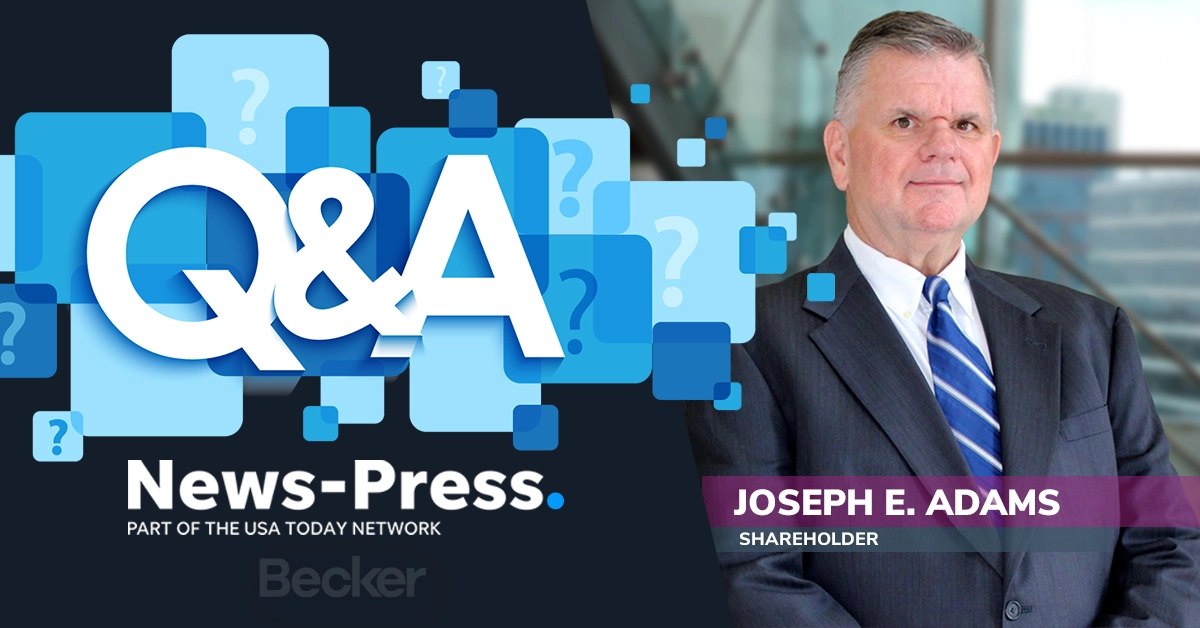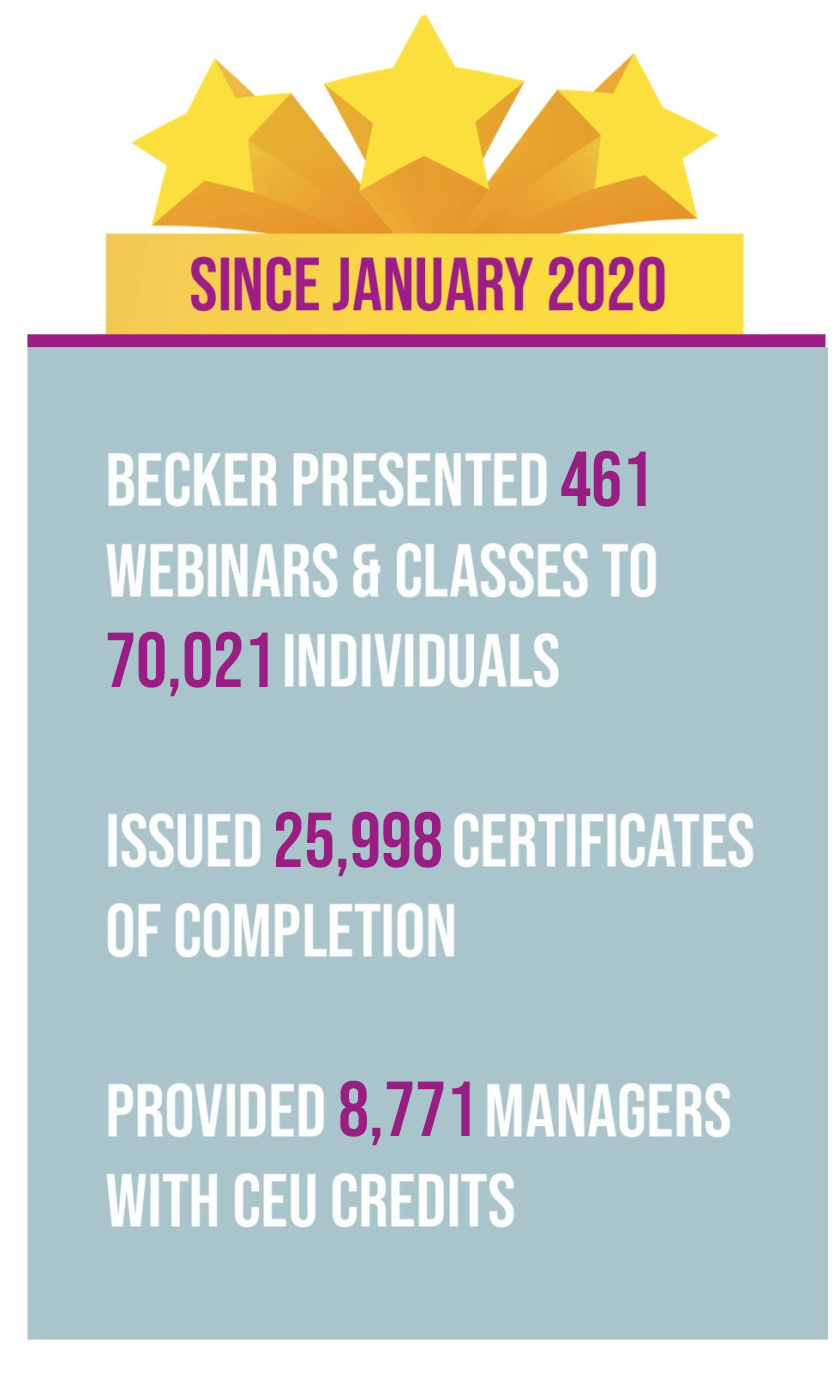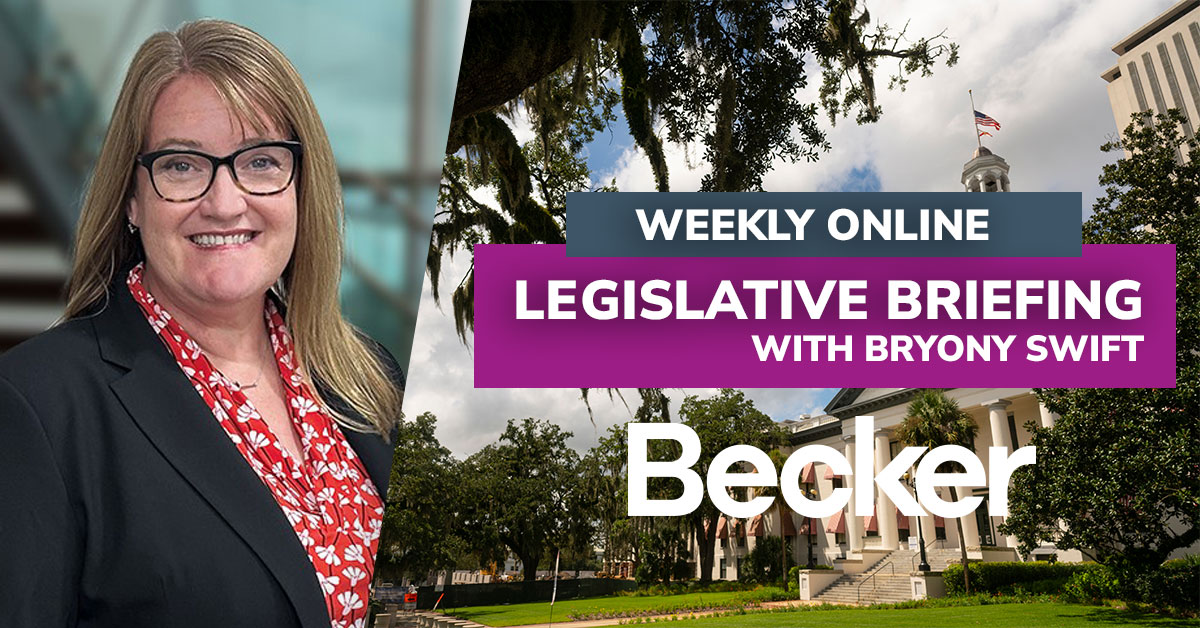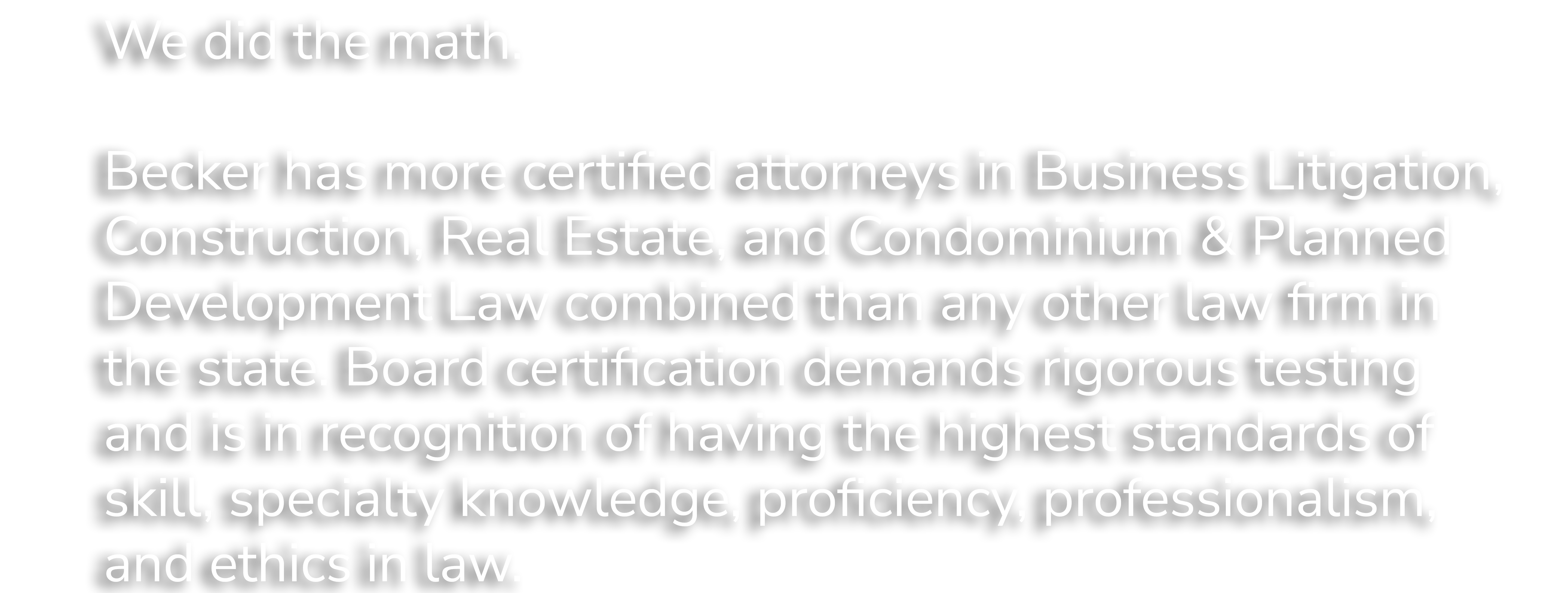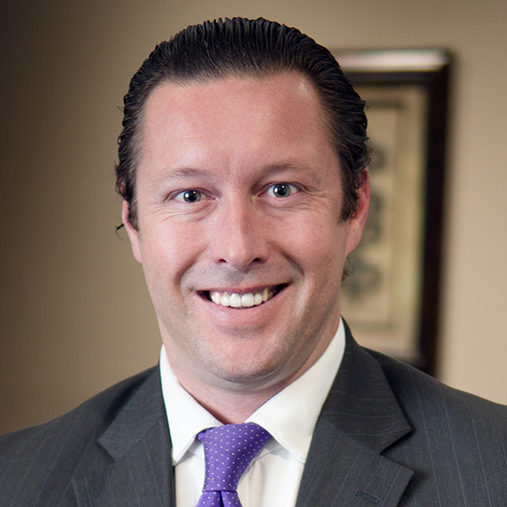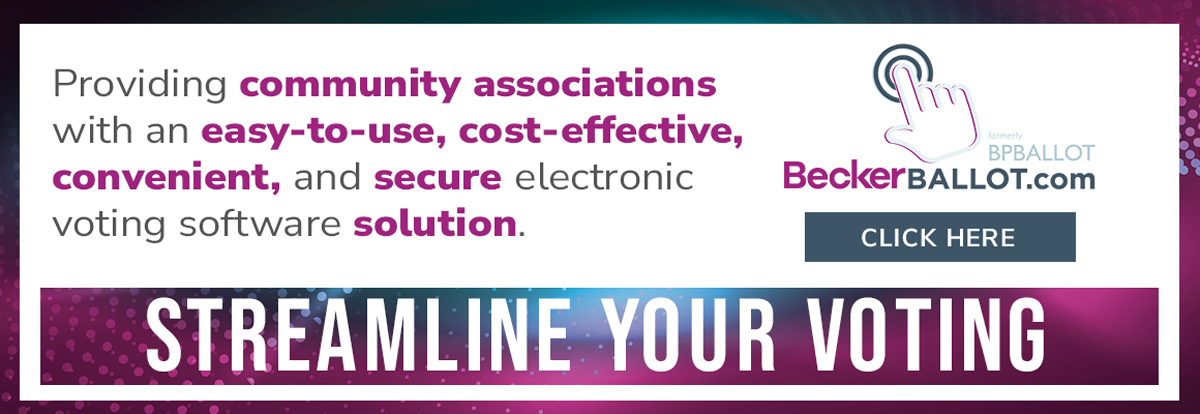The 2024 Legislative Session promises to bring sweeping changes to community association operations throughout Florida. In this issue of CUP, we highlight which bills we are watching, the Corporate Transparency Act, and the possibility of self-insurance. Don’t miss our weekly online legislative briefing with Bryony Swift. Also featured this month is our popular podcast, Take It To The Board. In this week’s episode, host Donna DiMaggio Berger emphasizes the practical policies and protocols your board needs to adopt.
Every so often associations will unexpectedly receive notice that a tax deed has been applied for in connection with a parcel or condominium unit in the community. How should your board handle these matters? Joseph Arena has all the answers in, “Things Associations Should Know About Tax Deed Sales.”
In today’s world, almost anything you can fathom can be conveniently delivered to your door. Has this convenience transmuted into a right? “Condominium Rule Restrictions of Door-to-Deliveries: A Right or a Convenience?” Attorney Casey Amaya discusses the issues involved with delivery-to-the-door services.
We live in a world so dependent on autonomy and artificial intelligence. Phones have become a portal of vast information and people regularly rely on search engines for answers. Florence King emphasizes the potential risks of AI in, “The Danger of Substituting Artificial Intelligence for Your Attorney.”
The ability (and limitations) on transferring limited common elements is at the heart of THIS CASE. Jay Roberts explains the importance of limited common element use rights in, “THIS CASE: Brown v. Rice.”
Articles
Things Associations Should Know About Tax Deed Sales
By: Joseph Arena
Every so often associations will unexpectedly receive notice that a tax deed has been applied for in connection with a parcel or condominium unit in the community. Those notices will describe tax certificates, provide a redemption amount, and state the date on which the parcel or unit will be auctioned for unpaid property taxes if the redemption amount is not paid. Board members will often have questions when they review these notices and will need to obtain legal advice about what their associations should do, if anything. Although these matters should be reviewed with legal counsel on a case-by-case basis, there are some general things about tax deed sales that associations should know.
Condominium Rule Restrictions of Door-to-Deliveries: A Right or a Convenience?
By: Casey Amaya
In today’s world, almost anything you can fathom can be conveniently delivered to your door. Whether it is pet food, medicine, or your next meal, you can have seemingly anything you want delivered without ever leaving the comfort of your condominium unit. But has this convenience become a right? Can a condominium control such deliveries?
The Danger of Substituting Artificial Intelligence for Your Attorney
By: Florence King
“Don’t confuse your Google Search with My Law Degree.” This is a popular saying found on attorney coffee mugs these days, and this sentiment does not seem so farfetched as we live in a world increasingly dependent on autonomy and artificial intelligence (“AI”).
It’s rare to see people without their phone glued to their hands, and not so much for one-on-one conversations with others. Phones have become a portal of vast information. People regularly rely on search engines like Google, platforms like “Siri” and even social media outlets for answers, all of which utilize AI algorithms to dictate outcomes and results for answers.
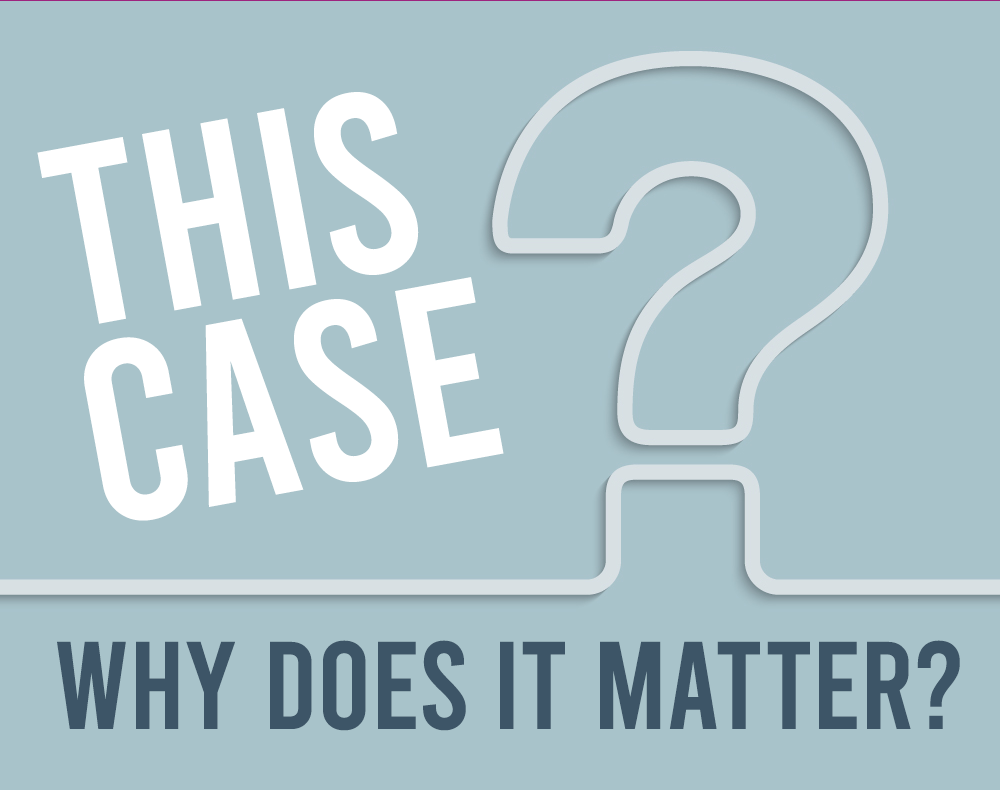
Brown v. Rice
716 So.2d 807 (Fla. 5th DCA 1998)
By: Jay Roberts
The ability (and limitations) on transferring limited common elements is at the heart of THIS CASE. The declaration of condominium at issue specifically described the garages as limited common elements and gave the developer the authority to assign garages. The subject garage was assigned by the developer to the original purchaser of Unit 511. Unit 511 was at some point conveyed to Marie Young, who then conveyed the subject garage to another unit / unit owner in the condominium, Maria Brown. Thereafter, Edward and Joan Rice purchased Unit 511 and made claim to the garage, and this lawsuit ensued.
The Court relied upon a then-existing prohibition in the Condominium Act on the conveyance of common elements which are appurtenant to a unit. Prior to and at the time of the Brown decision, §718.106, Florida Statutes (1997), read as follows:
(2) There shall pass with a unit, as appurtenances thereto:
(a) an undivided share in the common elements and common surplus
(b) the exclusive right to use such portion of the common elements as may be provided by the declaration.
In the Court’s view, the garage units were appurtenant to the living units to which they were assigned by the developer. Although chapter 718, Florida Statutes, did not include a definition of “appurtenant,” Black’s Law Dictionary 103 (6th Ed.1990), defines the term as “belonging to; accessory or incident to; adjunct, appended, or annexed to….” Applying this definition, the Court concluded that the developer made the garage units appurtenant to the living units to which they were assigned by referring to the garage units as limited common elements designated for the exclusive use to the individual unit owner. Furthermore, the garage units met the definition of limited common elements provided in Section 718.103(13), Florida Statutes, in that they were common elements reserved for the use of certain unit owners to the exclusion of others. Accordingly, the Court held that the previous transfer of the limited common element garage was ineffective, and the rights to the garage remained with Unit 511.
Following THIS CASE, the Legislature amended §718.106(2), Florida Statutes, several times, and it now reads:
(2) There shall pass with a unit, as appurtenances thereto:
(a) an undivided share in the common elements and common surplus.
(b) the exclusive right to use such portion of the common elements as may be provided by the declaration, including the right to transfer such right to other units or unit owners to the extent authorized by the declaration as originally recorded, or amendments to the declaration adopted pursuant to the provisions contained therein. Amendments to declarations of condominium providing for the transfer of use rights with respect to the limited common elements are not amendments that materially modify unit appurtenances as described in §718.110(4). However, in order to be effective, the transfer of use rights with respect to limited common elements must be effectuated in conformity with the procedures set forth in the declaration as originally recorded or as amended under the procedures provided therein. This section is intended to clarify existing law and applies to association existing on the effective date of this act (amended portions underlined).
So why does THIS CASE matter? Now the Condominium Act is clear that limited common elements may be transferred between units (limited common element rights can still not be transferred outside of the condominium). HOWEVER, the ability to transfer limited common element use rights amongst units must be contained in the declaration of condominium.
If you are uncertain whether your declaration of condominium has sufficient language to allow for transfer of limited common element use rights amongst unit owners, contact your community association attorney to discuss.
QUESTION OF THE MONTH
Q: We have an owner in our condominium community who refuses to pay the current monthly assessment. Each month, she sends a check based on our budget from 2 years ago. She says she has not received a copy of the proposed budget 14 days ahead of time for the past two years as she is supposed to.
Our board has proof that these materials were mailed to her and postmarked before the 14-day deadline. The notice was also posted 14 days before the meeting.
She states that if we impose a late fee, she wants a hearing before the board. How would you recommend dealing with this problem?
WHAT IS THE CORPORATE TRANSPARENCY ACT, AND WHY DOES MY COMMUNITY ASSOCIATION NEED TO KNOW ABOUT IT?
The Corporate Transparency Act (CTA) was enacted by Congress in 2021 to combat tax fraud, money laundering, and even domestic terrorism. Even if this doesn’t sound like something your community association should be concerned about, the CTA is broad-reaching. It will likely require your community association to register certain data – including Board member identifying information – with the U.S. Department of the Treasury’s Financial Crimes Enforcement Network (FinCEN).
IS SELF-INSURANCE POSSIBLE FOR COMMUNITY ASSOCIATIONS?
Florida Community Association Journal
By: Donna DiMaggio Berger
Insurance premiums have always constituted a significant percentage of most community association budgets, but astronomical increases in recent years have completely changed the budget landscape. In addition to unaffordable premiums, many insurers are denying full replacement cost coverage, demanding roof replacement for roofs that are still functioning, and/or pushing for complete exterior hurricane protection in order to offer coverage.
CALLING ALL BOARD MEMBERS AND COMMUNITY MANAGERS
As leaders in Community Association Law, we not only helped write the law – we also teach it.
Did you know Becker provides over 200 educational classes per year throughout the State of Florida on a variety of topics ranging from board member certification to compliance, and everything in between? Our most popular classes are now available online!
To view our entire class roster, visit: beckerlawyers.com/classes
UPCOMING CLASS OFFERING:
- HOA/Condo Board Member Certification
2/6/24 – 10:00AM – Registration coming soon - HOA/Condo Board Member Certification
2/21/24 – 12:00PM – Registration coming soon
Can They Do That?
Becker’s “Can They Do That” video series tackles some of the unique problems that homeowners and renters face today. We answer your questions, no matter how far-fetched they may seem. From service animals to nudists in your community, we get to the bottom of it and let you know – “Can They Do That?”
Becker Steps Up to the Mic with Podcast,
‘Take It To The Board with Donna DiMaggio Berger’
Think you know what community association life is all about? Think again. Residents must obey the rules, directors must follow the law, and managers must keep it all running smoothly. Take It To the Board explores the reality of life in a condominium, cooperative or homeowners’ association, what’s really involved in serving on its board, and how to maintain that ever-so-delicate balance of being legally compliant and community spirited. Leading community association attorney Donna DiMaggio Berger acknowledges the balancing act without losing her sense of humor as she talks with a variety of association leaders, experts, and vendors about the challenges and benefits of the community association lifestyle. Don’t have a streaming app? You can now find all episodes on YouTube! Click here to listen now.
RECENT EPISODES:
-
- Lessons in Leadership – A Discussion with Becker’s Managing Partner, Gary Rosen
- Checking In On Background Checks: What’s In, What’s Out and What’s Questionable? with Robert E. Sanchez of Sarma
- Boot Camp for Board Members: Army Vet, PCAM and Becker Shareholder, Howard Perl, Discusses the Benefits of Rigorous Board Member Education
- Pesky Critters in Your Community? Top Tips From Wildlife Expert and Trapper Todd Hardwick
- Saving Lives in Your Community Association: Defibrillators (AEDs), Bleeding Control Kits (BCKs), and CERTs with Dr. Jason Mansour
- Show Me the Money: Investment Strategies with Michael Coady and Kenny Polcari of Slatestone Wealth
- Eyes Everywhere – Understanding Community Surveillance Options with Louis DiGioia of IC Real Time
- Practical Policies & Protocols Your Board Needs to Adopt with Claude Jennings, Jr.
Featured Episode: Practical Policies & Protocols Your Board Needs to Adopt with Claude Jennings, Jr.
What’s the secret to a highly functioning community association? Host Donna DiMaggio Berger and Take It To the Board’s producer, Claude Jennings Jr. look back on Take It To The Board’s 2023 season and revisit some of the most important conversations about community association living while answering listener questions.
Most new communities are devoid of all but the most basic policies and over the years far too many boards fail to anticipate which policies and protocols can make their jobs, as volunteers, easier. Does your community have the following policies in place and, if not, why not?
WEEKLY ONLINE LEGISLATIVE BRIEFING
Tune in every Thursday at 11:30AM EST during session (beginning Feb 1 through March 14th) for an insightful 30 minute webinar series hosted by Bryony Swift for legal Insights and analysis of recent legislative changes and how they can (how their adoption may) impact community associations in Florida.
CONGRATULATIONS TO ROBERT DEAN ON WINNING OUR SURVEY GIVEAWAY!
Congratulations to Robert on your $50 Amazon Gift Card prize! You are this month’s Online Program Feedback Winner! We truly appreciate you taking the time to complete the program survey and letting us know what you found beneficial and what we can do better. Education is a top priority for Becker, and it is important to us to hear what you find of value. Thank you for your thoughtful response to our survey!
If you would like to be in the running for next month’s $50 giveaway, please provide your feedback on any of our in-person or online program(s) that you have attended. You can find all of our on-demand classes here, and our webinars here, which are currently free and available to the public, for you to watch at your convenience. We want to hear from you!
DID YOU KNOW?
The 2024 Legislative Session Is Underway!
The 2024 Legislative Session began on Tuesday, January 9, 2024, and promises to bring sweeping changes to community association operations throughout Florida. Becker’s CALL Alert provides our clients with an update on the bills filed to date, and lets you know which ones we are watching closely as they pass through the committee process. It is unfortunately not possible to completely summarize the wide-ranging proposals below, so we are urging you to read these bills in their entirety and to contact your Becker attorney for guidance. You will also see after reading some of the proposals below that your members’ immediate outreach to the sponsors of these bills is needed!




